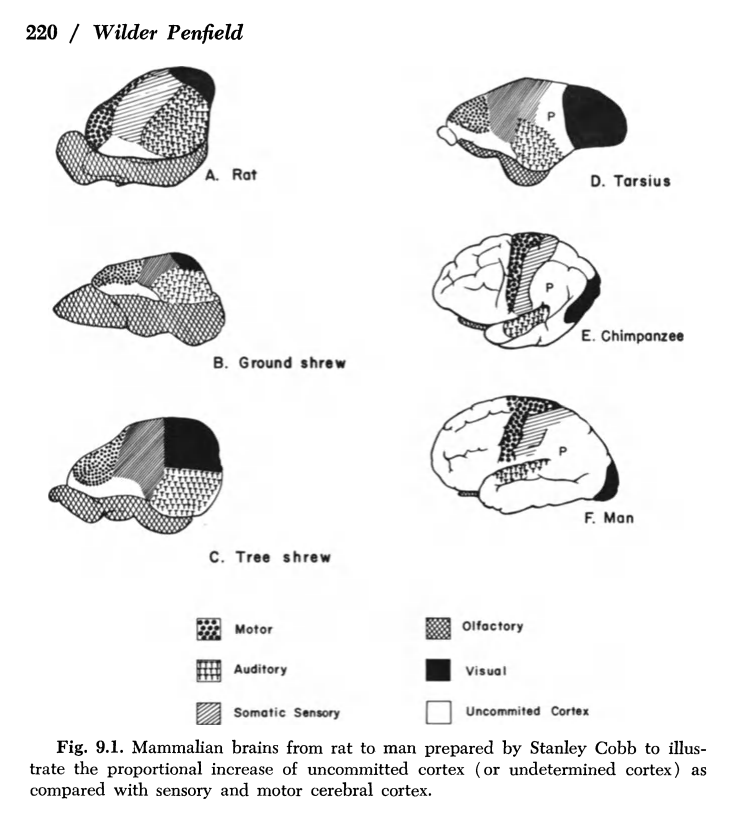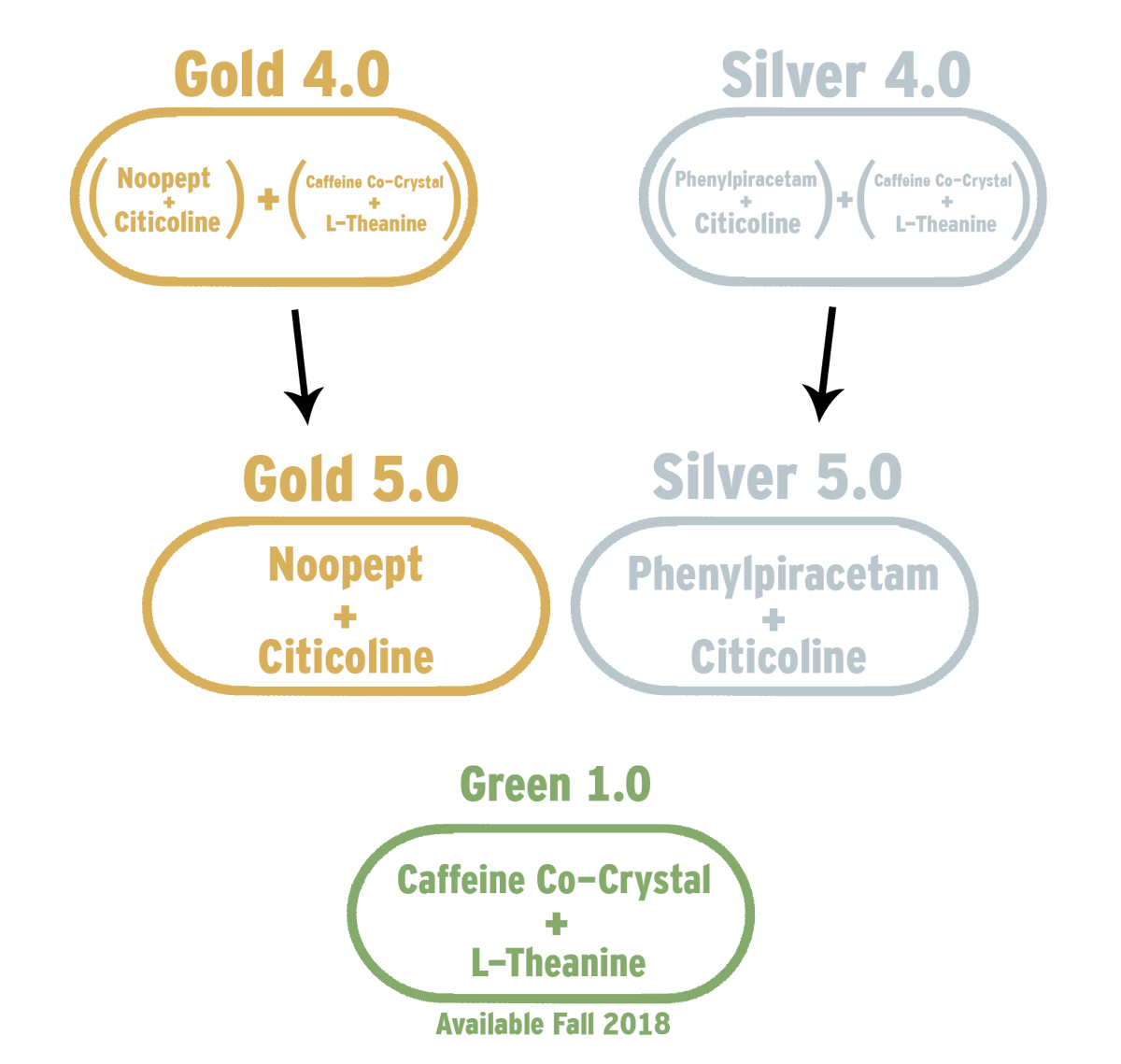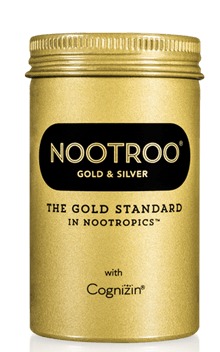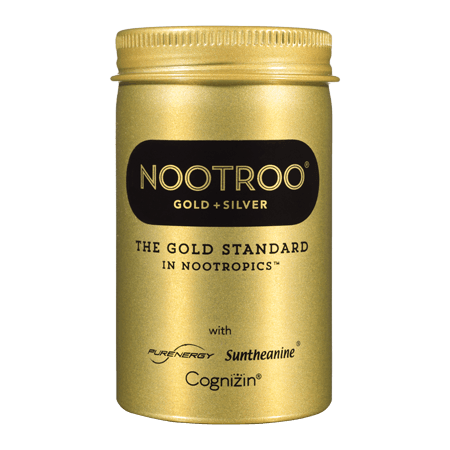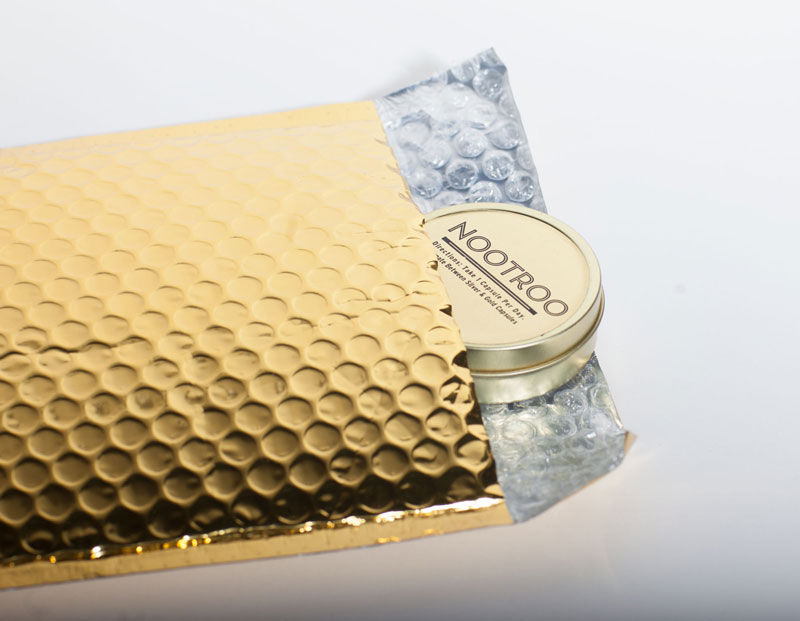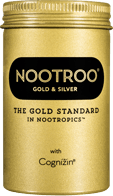The word “nootropic” comes from the Greek word “noos” meaning “mind” and “tropein” meaning “towards” and was coined in 1972 by Corneliu Giurgea to describe a class of compounds that selectively act “towards the mind.”
Unfortunately, for the last 4 years, the definition on Wikipedia has relied on a direct translation from a Russian dictionary and is incorrect in stating that the “-tropic” suffix is derived from the greek word “trepein” and means “to bend or turn”. This definition is clearly incorrect as is demonstrated by the 4 examples cited below, which come directly from Giurgea’s writings. The examples clearly show the definitions and usage in context, which all demonstrate that “-tropic” is actually derived from “tropein” and is defined in the nootropic concept as “towards.” In the context of Giurgea’s writings, “bending or turning the mind” would not apply, and thus clearly, the root of the word “nootroopic” means “towards the mind” and not “to bend the mind.”
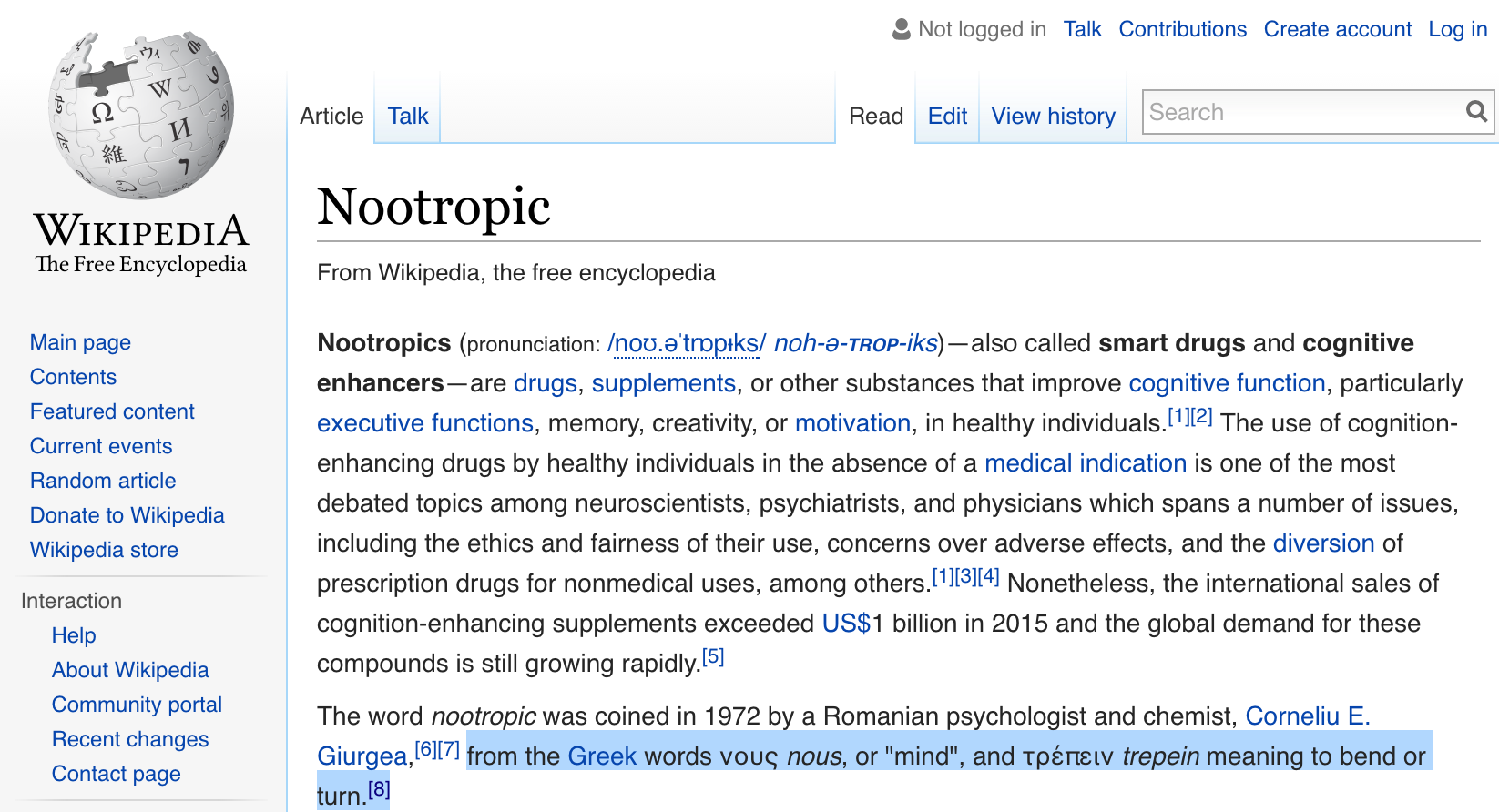
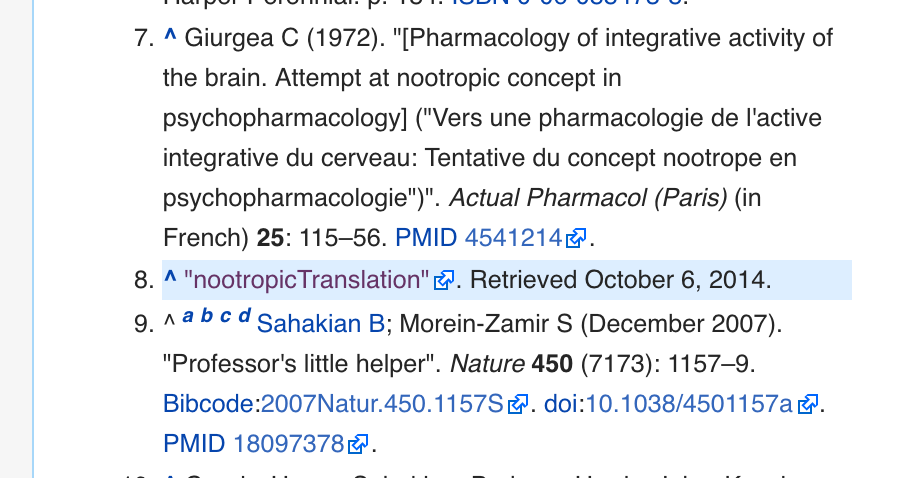
So, to lay the record straight once and for all, here are direct sources with links to the papers and/or images I extracted as proof. This example is from the first paper ever published on nootropics in English, Corneliu Giurgea’s 1973 paper titled, “The ‘nootropic’ approach to the pharmacology of the integrative activity of the brain” [ Pubmed | Full Text | DOI: 10.1007/BF03000311 ], where he states it clear as day:
“A new class if therefore to be considered for which we propose the term Nootropic (from Noos—mind, and tropein—towards).”

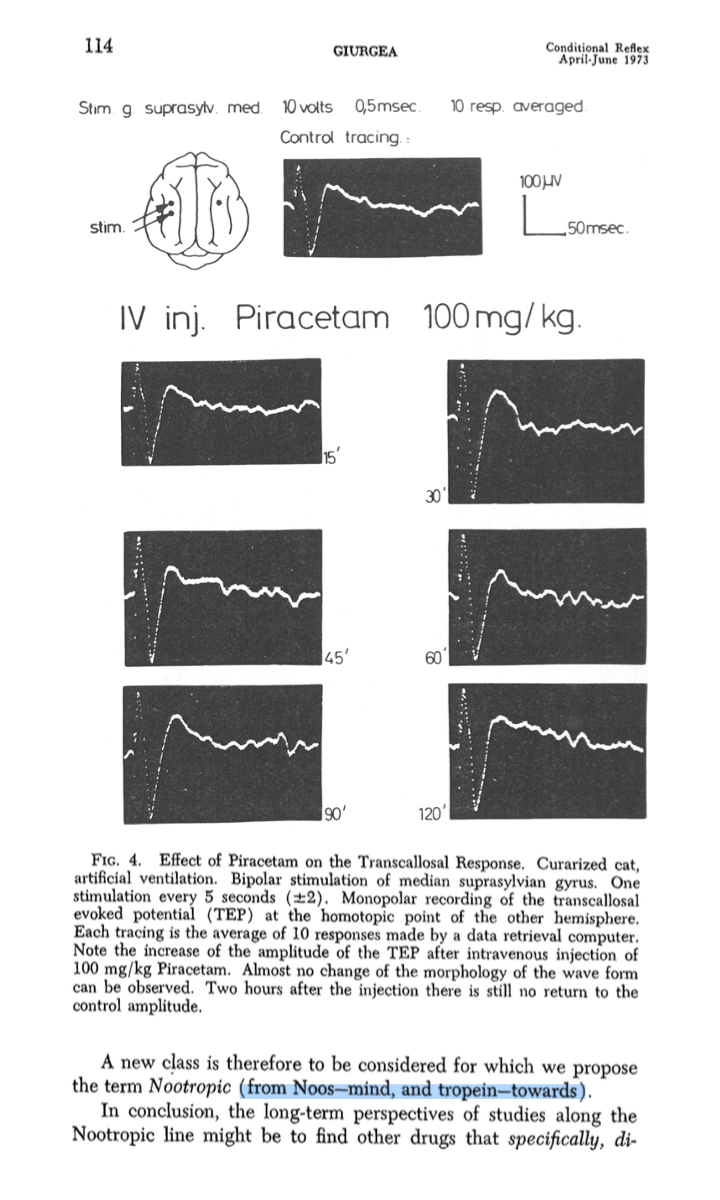 A second direct definition is made in Giurgea and Salama’s 1977 Paper, “Nootropic Drugs”, published in Prog. Neuro-Pharmacology. 1.235-47, which states:
A second direct definition is made in Giurgea and Salama’s 1977 Paper, “Nootropic Drugs”, published in Prog. Neuro-Pharmacology. 1.235-47, which states:
“The term “nootropic” (noos = mind; tropein = towards) was proposed by us…”

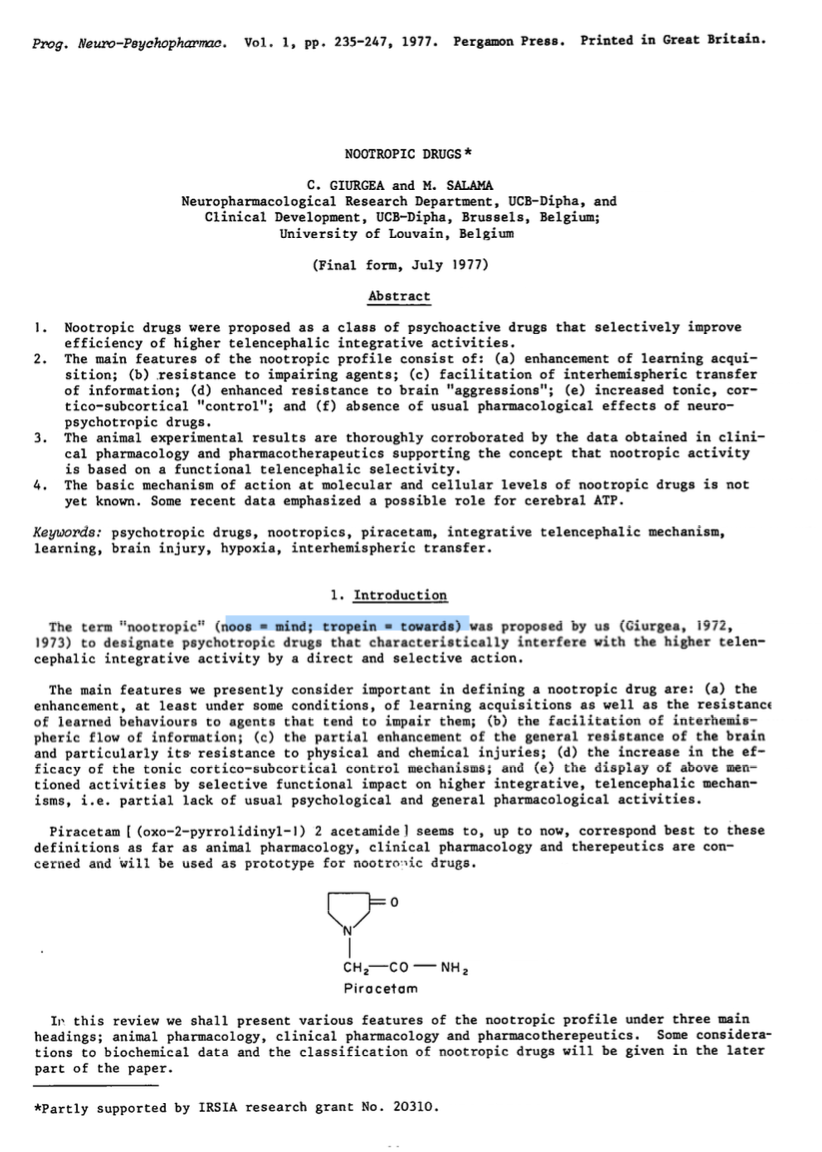
In 1980 in Giurgea used the phrasing in a sentence which goes even further to give an exact meaning within context. In the paper, “A Drug For The Mind” which appeared in CHEMTECH vol 10 June 1980, on pages 360-365, Giurgea states “we coined the term nootropic to describe the class of compounds which selectively acts towards (Gr.:tropein) the mind (Gr.:noos).”
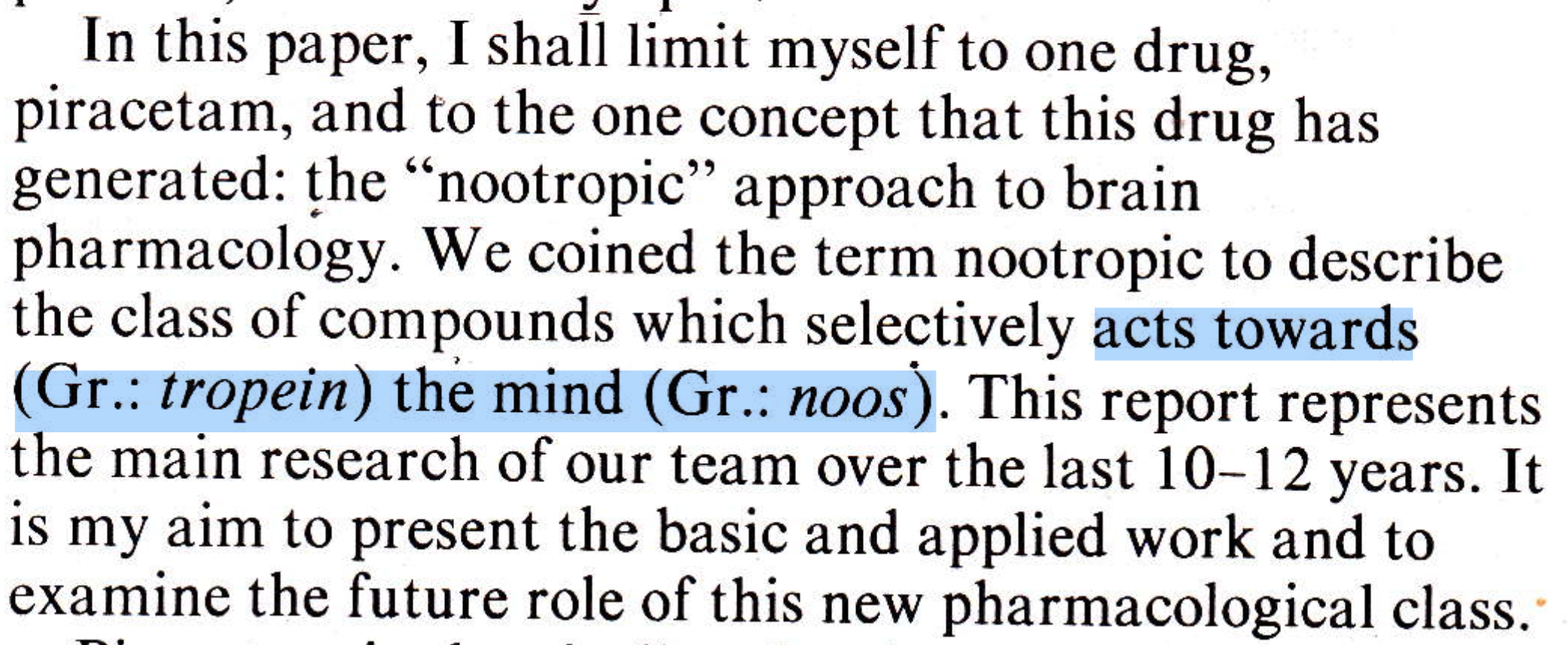
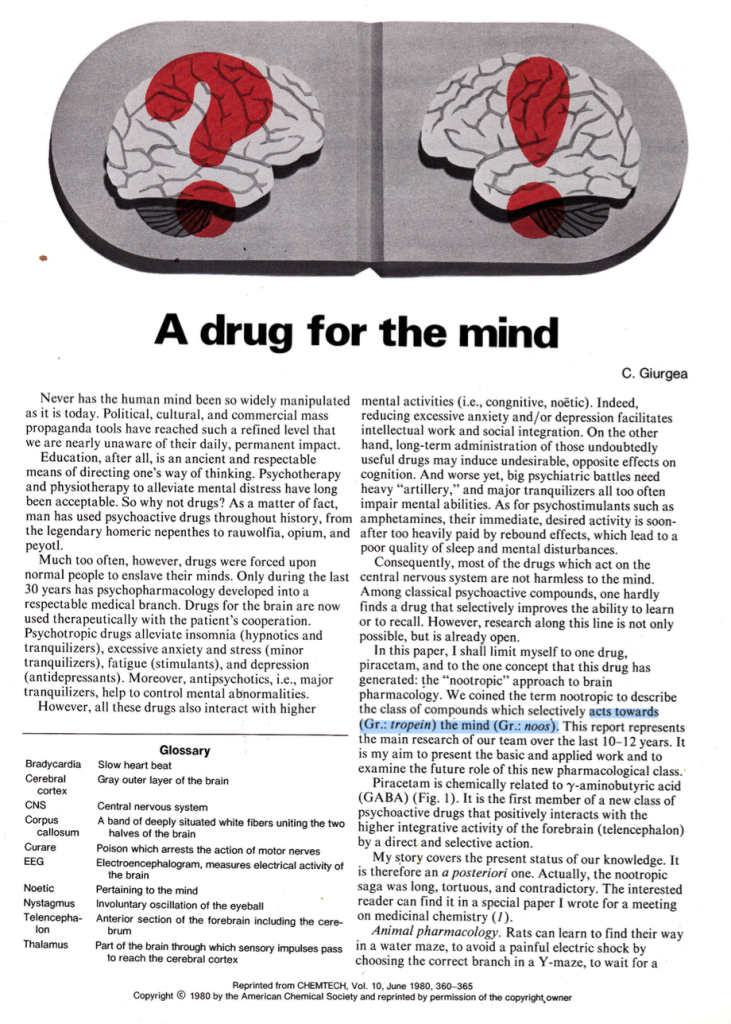
An additional mention of the true root being “towards” was made in Corneliu Giurgea’s 1982 paper, looking back on the 10 years since his introduction of the nootropic concept. The article, “The nootropic concept and its prospective implications” [Wiley | Full-Text | DOI: 10.1002/ddr.430020505] , appeared in Drug Development Research , Issue 5, pages 441–446, 1982. The quote is as follows: “Because drugs along this line “aim” selectively at the noetic functions, we suggest that they should be called nootropics (noos = mind; tropic = towards).” What is different and an even bigger sign of evidence for the root being “towards” and not “to turn or bend” is that here he is referencing the actual word and not the greek words, so it can be considered a direct definition of the component parts of the word “nootropics”, from the creator himself.
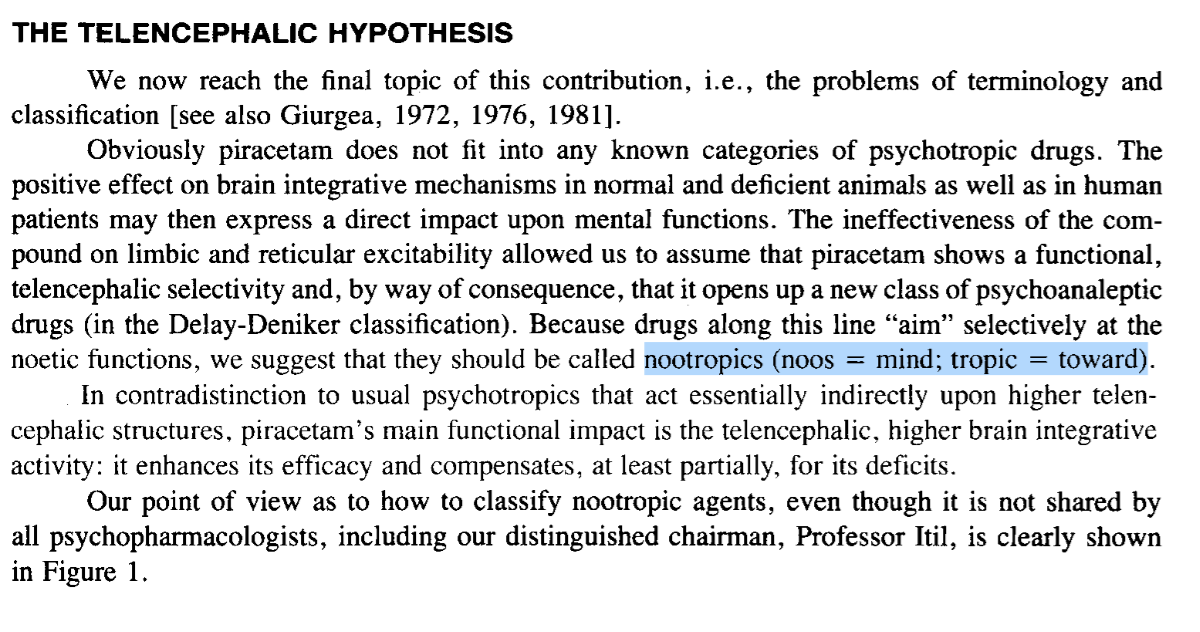
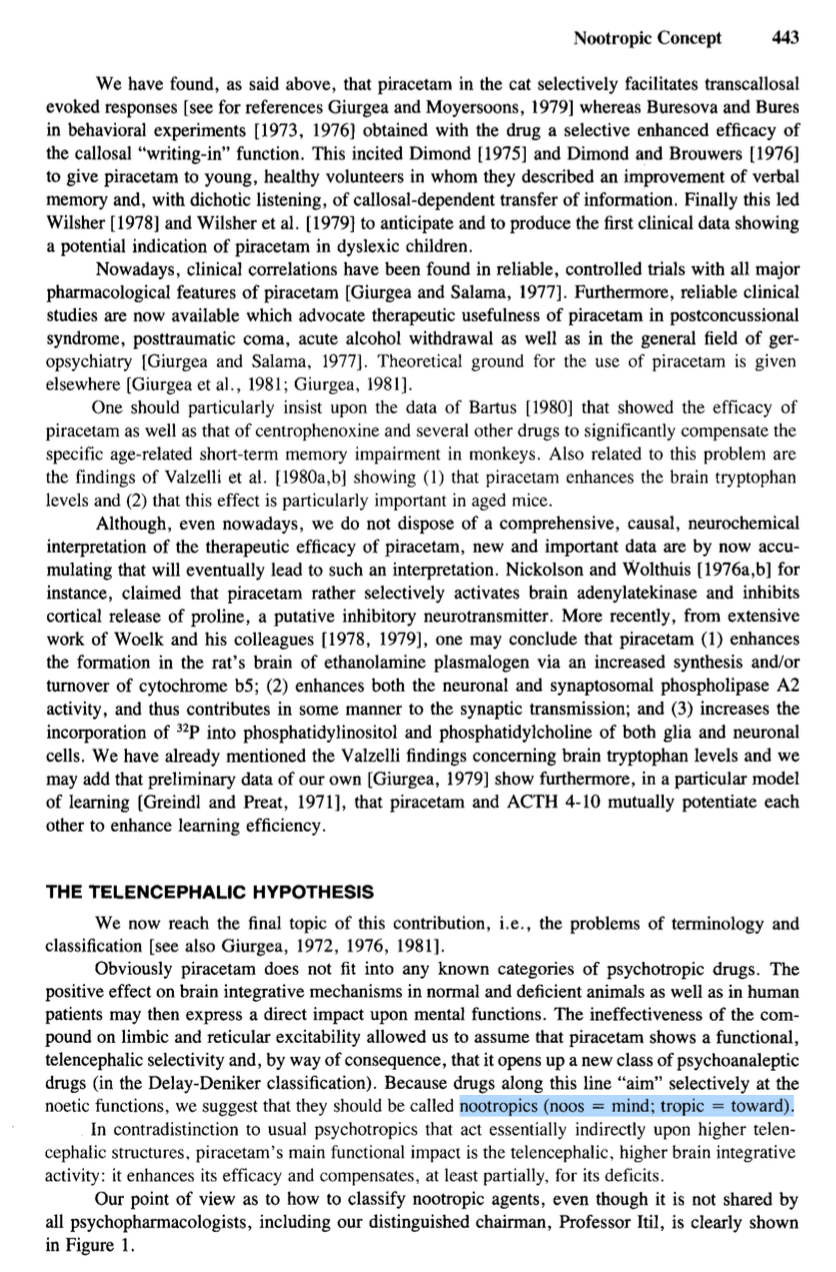
In conclusion, the word “nootropics” should be translated as meaning “towards the mind” and not “to bend or turn the mind”, as demonstrated in four examples above, the word nootropic is derived from the greek words “noos” meaning “mind” and from “tropein” meaning “towards”. There is little room for argument here, as this is straight from the person who invented the word and the grandfather of nootropics, Corneliu Giurgea.
